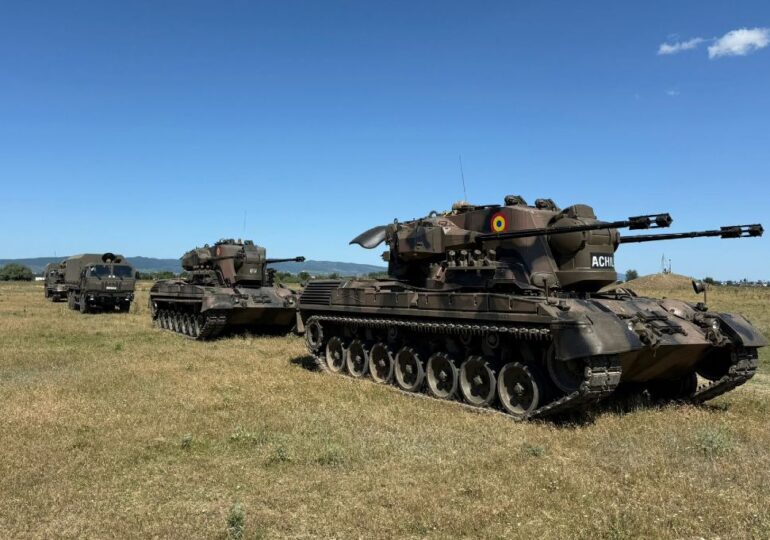Bucharest seeks industrial benefits as Europe rushes to rearm, says Romanian Defense Minister Ionuț Moșteanu.
Romania wants the European rearmament effort to bring benefits to all EU member states, not just the largest ones.
The massive increase in defense spending and arms orders expected in the coming years should translate into new factories and jobs in Romania, Moșteanu stated to Politico.
"If we spend people's money on defense, it is important for them to see that some of this money returns to their country, for example, through factories. It's not just about buying missiles from abroad.
We aim for part of the production to be in Romania. We want to be part of the production chain. Every country wants as large a share as possible, but so far only a few have succeeded," the minister said in an interview at NATO headquarters.
Western states such as France, Germany, Italy, and Sweden have the most developed arms industries in the EU and benefit from most profitable contracts.
Former Eastern Bloc countries like Romania tend to have smaller defense companies, without the technological know-how to produce the full range of weapons needed for rearmament, making them more dependent on external suppliers.
The invasion of Ukraine by Russia has opened the funding taps for defense. NATO countries agreed this summer to increase their defense spending target from 2% of GDP to 5% by 2035. According to the European Commission, reaching the new target will require an additional €288 billion in defense spending each year.
Romania spends 2.3% of its GDP on the military this year and aims to increase this figure to 3.5% by 2030.
One of its main challenges is modernizing the armed forces, which have operated for decades largely with outdated military equipment from the Soviet era, writes Politico.
Loans for arms
Bucharest is set to be the second-largest beneficiary of the EU's SAFE program, worth €150 billion, and is requesting €16.7 billion in low-interest loans for defense.
Moșteanu stated that two-thirds of these funds will be spent on military equipment, and the rest on infrastructure, including military aid for Ukraine and Moldova.
The condition for any purchase under SAFE - which is largely open to European companies - will be to obtain industrial benefits in Romania, the minister said.
An example of the country's efforts to ensure that a portion of defense funds stays in the country is the €6.5 billion tender for over 200 tanks, which stipulates that the final assembly will be done in the country.
"It is very important for the coming years that when we talk about spending, we distribute industrial profit equally across the entire continent," the minister said, also referring to countries further away from the front line, such as Portugal.
"It's a negotiation with producers," he said, adding that if European producers do not accept the requirements for domestic production, Bucharest will take its money to companies outside the EU willing to do so.
The Romanian government is already a significant customer of foreign arms manufacturers, especially from the US, Israel, and South Korea. Recently, it has acquired Patriot air defense systems and F-35 fighter jets from American manufacturing, as well as K9 self-propelled howitzers from South Korean company Hanwha Aerospace.
Last year, Hanwha Aerospace executives told Politico that Romania could become a weapons production hub for Europe, the Middle East, and Africa.
What Romania brings to the table
Romania, one of the most industrialized countries in Europe, has assets to offer arms manufacturers, Moșteanu argued.
It already attracts some of the largest defense companies in Europe. Bucharest and the German giant Rheinmetall signed an agreement earlier this year to build an ammunition powder factory partially funded by the EU, under the ammunition production support scheme.
In the near future, manufacturers will need to open new factories to meet demand, and Romania could easily host some of them, Moșteanu said: "We have defense production facilities with all the necessary approvals. They are not updated, but it's a good starting point."
Another strength of the country is its robust automotive sector, which could help arms manufacturers quickly ramp up production. Defense companies across the bloc team up with car manufacturers to leverage their expertise in mass production.
"We have a very strong auto industry in Romania, which can pivot towards the defense industry," the minister said, adding that the equipment, production lines, expertise, and supply chains are already in place.

